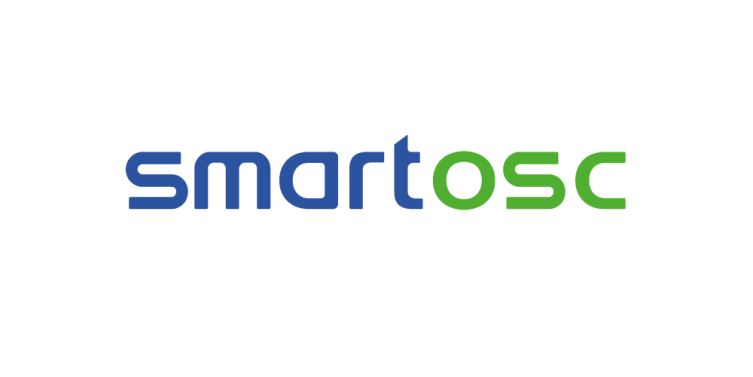To become a successful Data Analyst with many opportunities for advancement, it is essential to continuously develop your skills, knowledge, and experience. So, how to learn Data Analyst? What is the self-study roadmap for beginners? Let’s find out in this article.
What Do Data Analysts Need to Learn?
There are many courses available for Data Analysts, suitable for all levels and budgets. A general overview of courses from basic to advanced includes:
- Basic Data Analyst Course: This course is for beginners and provides basic knowledge and skills in data analysis.
- Advanced Data Analyst Course: This course is for those who have basic knowledge and skills and provides advanced knowledge and skills in data analysis.
- Professional Data Analyst Course: This course is for those who want to become professional Data Analysts and provides comprehensive knowledge and skills in data analysis.
Here are some popular platforms that offer online and in-person courses for Data Analysts:
- Coursera: Coursera is the world’s leading online education platform, offering many Data Analyst courses from reputable universities and organizations.
- Udemy: Udemy is the world’s largest online education platform, offering many Data Analyst courses from experienced instructors.
- Udacity: Udacity is an online education platform specializing in technical skills, offering many Data Analyst courses from industry experts.
- edX: edX is an online education platform founded by Harvard University and MIT, offering many Data Analyst courses from reputable universities.
- Khan Academy: Khan Academy is a free online education platform that offers many basic Data Analyst courses for those who are just starting to learn about this profession.

Beginner’s Guide for Data Analyst
Starting to learn a new profession can always be challenging and requires your perseverance and self-study skills. Here is a self-study roadmap for Data Analysts for beginners that SmartOSC has compiled for you to refer to:
Step 1: Prepare the foundation knowledge
- Statistics: Statistics is the foundation of data analysis. You need to understand basic statistical concepts such as mean, variance, standard deviation, probability distribution, etc. to be able to analyze and understand data accurately.
- Programming: Programming is an important tool that helps you collect, process, and analyze data. You need to know how to use one or more programming languages such as Python, R, SQL, etc. to automate tasks and create data analysis models.
- Communication: Data analysts need to be able to communicate effectively with different stakeholders. You need to be able to present the results of data analysis in a clear and concise way, and answer other people’s questions fully and accurately.
- You can learn these knowledge and skills through online courses, reference materials, or Data Analyst communities.
Step 2: Learn data analysis tools and skills
After preparing the foundation knowledge, you need to learn data analysis tools and skills. These tools and skills include:
- SQL: SQL is a database query language that helps you retrieve data from databases.
- Python: Python is a popular programming language that is used for a variety of purposes, including data analysis.
- R: R is a specialized programming language for data analysis.
- Data visualization tools: These tools help you create charts, graphs, and diagrams to communicate information from data.
You can learn these tools and skills through online courses, reference materials, or real-world projects.

Step 3: Practice and build a portfolio
Practice is an essential aspect of becoming a proficient Data Analyst. Engaging in real-world projects is crucial for solidifying your knowledge and honing your skills. These projects provide hands-on experience in applying data analysis techniques to address practical problems and generate meaningful insights. Additionally, constructing a portfolio that showcases your accomplishments and expertise is vital for demonstrating your capabilities to prospective employers. By actively participating in these endeavors, you will gain valuable experience, strengthen your problem-solving abilities, and enhance your employability in the competitive data analytics landscape.
Step 4: Find internship and job opportunities
Once you have equipped yourself with the requisite knowledge and skills, embark on the exciting journey of seeking internship and job opportunities. Utilize the vast resources at your disposal, including job boards that aggregate listings from various sources, social media platforms where companies actively seek talent, and personal connections within your network. Leverage these channels to uncover suitable opportunities that align with your aspirations and pave the way for a fulfilling career in the dynamic field of data analytics.
Some tips for those who want to self-study Data Analyst
- Set clear learning goals: t is essential to define what specific areas of data analysis you aim to master and understand the level of expertise you aspire to achieve. Identifying whether you’re striving for a basic, advanced, or professional proficiency in data analysis will allow you to tailor your learning trajectory accordingly, focusing on relevant skills, tools, and techniques.
- Calculate time and budget: Understanding the amount of time and financial resources you can allocate to learning data analysis will help you plan your educational pursuits effectively, whether through formal education, online courses, or self-study resources.
- Evaluate your current level: Assessing your existing familiarity with data analysis concepts, tools, and methodologies will guide you in selecting appropriate entry points into the learning process. This self-assessment will also assist in identifying any gaps in knowledge that need to be addressed.
- Learn in a systematic way: Structured learning, starting from foundational knowledge and progressing to more advanced topics, ensures a thorough and comprehensive understanding of data analytics principles and practices.
- Practice regularly: Regular practice is indispensable for consolidating your knowledge and honing your skills in data analysis. Engaging in hands-on projects, exercises, and real-world data analysis tasks will fortify your understanding and proficiency in this field.
- Join Data Analyst communities: Participating in such communities allows you to tap into collective expertise, gain insights from others’ experiences, and stay updated with the latest trends and developments in the realm of data analysis.
Hopefully, with this article, you will have more accurate advice and choices for your self-study journey to become a professional Data Analyst. Wish you success on the path to becoming a professional Data Analyst! Explore Data Analyst opportunities on SmartOSC Careers.






